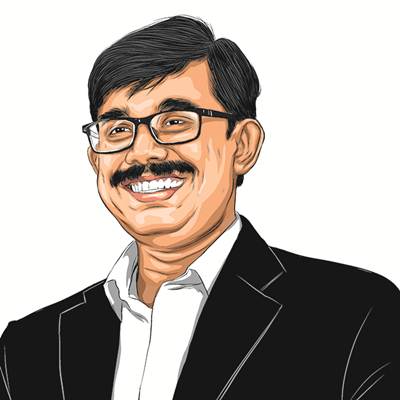Opinion Terrorists tried to break the trust, we must not let them
Being Indian is about trusting our fellow citizens to lend their shoulder, to help each other out of a crisis, to understand. It is important to remember: Trust will always be stronger than terror
 J&K’s fraught history has been a story of trust and betrayal — whichever side you are on. (PTI Photo)
J&K’s fraught history has been a story of trust and betrayal — whichever side you are on. (PTI Photo) At the heart of tourism is trust: You check into a hotel room and trust your life with the staff; you trust the restaurant’s hygiene; the taxi driver. When you mount a pony or go for a walk in a meadow in Pahalgam, you trust that no one will jump out of the chinar trees and fire at you.
That’s why the tourism boom in Jammu and Kashmir was not just about its stunning scenic beauty, escaping the heat or getting a great Insta reel — it was about trusting a whole new world. A group of men, blinded by ideology, cannot change that, will never change that. A nation’s trust in itself is much more powerful and enduring. Two weeks after the Pahalgam attack, that’s also a message we need to underline. The government’s firm response with Operation Sindoor is a part of that message and seeks to reinforce that no one gets away with the murder of innocent people. I haven’t had the privilege of visiting Pahalgam but I took notes on my last trip to the Valley a few months ago. There, I realised how trust is a two-way compact and how the changing Valley is all about building it.
J&K’s fraught history has been a story of trust and betrayal — whichever side you are on. From Maharaja Hari Singh to the Pakistani raiders to Sheikh Abdullah and Nehru to 1989 and the exodus of Pandits, the terror networks in Pakistan and to this day.
On the street, though, trust played out in ways I had never imagined.
I remember everyone I met there: Adil, the airline staff member, who called my home to say I had landed when my phone had died. Ashfaq, the driver of the car, who, when he saw me struggling with my phone, asked me if I had prepaid or a post-paid plan as he gave me a running commentary on the places I should visit. Iqbal, my guide who accompanied me to Dal Lake and introduced me to Abdul, the man in charge of the shikara, who gave me a crash course in the history and geography of Dal. Along the road that skirts Dal, there was also Ramesh, the migrant from Lucknow selling golgappas, who said he couldn’t accept payment on PayTM because he had just got a connection which hadn’t been activated.
It began to drizzle and Iqbal brought me a cup of kahwa; when I asked about its ingredients, he took me on a trip across the country from south to north and west to east. One image that is seared into my memory is of armed security personnel across the city. When I asked Iqbal about their ubiquitous presence, he said: “Someone says like a child, maybe Kashmir needs protection for the time-being. We need opportunity, if young boys do well in school, college, have jobs, and can follow their dreams, who will go on the path to terrorism?”
News was my reference frame for Jammu and Kashmir and news, by definition, is about the outlier, about the man who bit the dog, but staying in the Valley for a few days, meeting its people, I was introduced to a social compact. Clearly, people I interacted with had rolled out the red carpet for me aware of the trust deficit I may have had. But for a moment, they put their own mistrust aside to reach out to me.
It’s this that was evident in the special session of the J&K House last week when Chief Minister Omar Abdullah so eloquently and poignantly admitted that the state had failed the tourists and underlined how the massacre had killed a bit of everyone, everything. How the people in the state had come together for the first time and sent a message to the killers: Enough is enough.
What Abdullah was doing was to repair the broken trust. Even the PM, by framing the attack as an attempt to turn the clock back, was sending a powerful message: This was an attempt to sow mistrust again.This is not just about tourism revenue or numbers, this is about repairing the very social compact that marks progress in J&K.
In Pahalgam, the terrorists asked the tourists their faith. Knowing very well that not one tourist in that meadow had inquired about the religion of the pilot who flew them to Srinagar, or the faith of the taxi driver, the tea-stall owner; the local who ran the home-stays, the online bookings, the pony wallah, the shopkeeper, the guide. Because there was trust. Implicit and explicit.
That was what broke in the Pahalgam afternoon on April 22 and that’s what we need to restore for all of us.
For, being Indian is about trusting our fellow citizens to lend their shoulder, to help each other out of a crisis, to understand. The tourist is the guest and the guest is God so it’s the host who’s entrusted with a very special responsibility. That’s why we need to renew our trust. We cannot let four terrorists shatter the trust built with the kindness of strangers and the comfort of our fellow citizens. They need to be told that trust will always be stronger than terror.
Nilay is the author of Being Good, Aaiye, Insaan Banen and Ethikos






